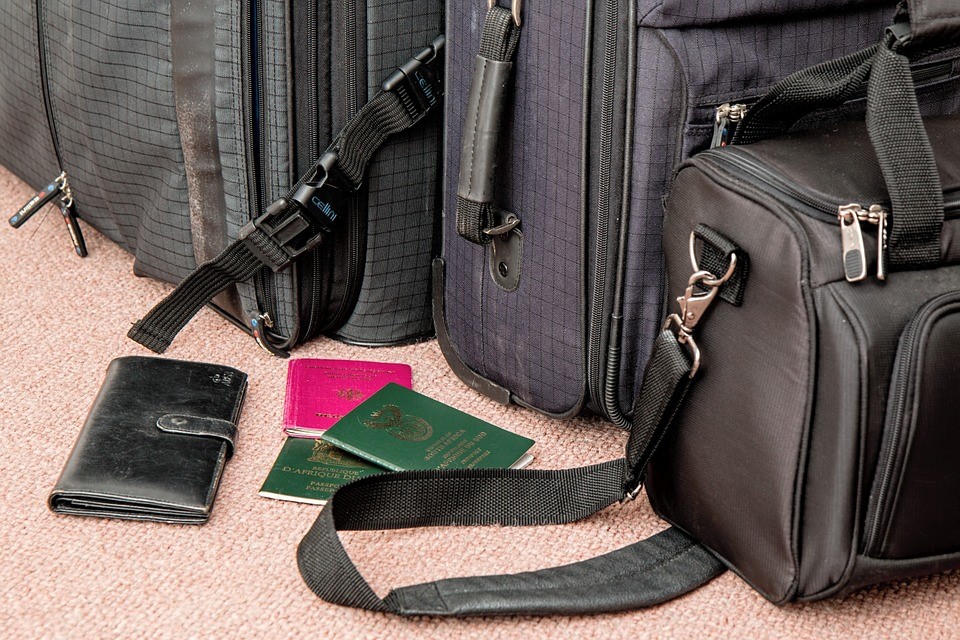Legal
Golden Visas And Property - Business Sense Or Security Risks?

The global market for citizenship and residence, in which HNW individuals pay/invest large sums to obtain this status, is controversial but it has its notable defenders. This article is such an example.
Citizenship and residency schemes where investment is part of the deal - either in hard cash, or specific purchases of assets such as residential developments - have been around for some time. Jurisdictions around the world, such as the UK, Malta, Spain, Portugal, Moldova, the US, and Singapore, have variants. Sometimes these programmes become politically controversial and have been attacked as being open to abuse by money launderers. They are also, in some ways, a reflection of how citizenship/residency is now part of a global marketplace of its own, at least for those who can afford it. This remains a hotly contested subject.
In this article, Mark Davies, who is managing director of Mark Davies & Associates, a firm advising individuals on such matters, looks at the state of the market and, in particular, the real estate aspects. The editors of this news service are pleased to share these views and invite responses. Email the editor at tom.burroughes@wealthbriefing.com and deputy editor at jackie.bennion@clearviewpublishing.com The editors do not necessarily share the views of guest contributors.
Obtaining citizenship by investment into a particular
jurisdiction is nothing new. The industry of ‘buying’ second (and
third, and fourth…) passports has been under scrutiny for years,
but internationally mobile individuals continue to pursue this
option. It has been revealed that Moldovan passports are now
being used to incentivise property investors in Dubai, which
raises the question: why is a second passport so attractive and
is this putting international security at risk?
Worldwide there are many jurisdictions where the residents live
in fear of the tax authorities, even in cases where they have
been fully compliant. This corruption is driving
individuals to leave their homes and establish themselves
elsewhere. Additionally, with the Common Reporting Standard
(“CRS”), infamous ‘leaks’ and public registers, many see it as a
matter of time before they are the target in an unjust system.
The mere mention of a company tax resident in the British Virgin
Islands or a trust conjures thoughts of tax evasion and wealth,
even where professionals have been engaged at all levels to
ensure that they are compliant. As such, if the link to the
original country is replaced by citizenship in a new
jurisdiction, this threat is decreased.
Visa-free movement is a liberty that many individuals enjoy. For
some, especially those resident in the corrupt countries
mentioned above, the documentation required for travel could be
onerous. Indeed, we have spoken to clients that allow additional
time just to make it through customs at their arrival
destination.
With Brexit, we are all aware how liberating an EU passport can
be. EU citizens are able to exercise the right of free movement
throughout the European Economic Area (“EEA”) and Switzerland.
Broadly, this right allows EEA citizens to live and work
throughout the EEA provided that they are either employed,
self-employed, studying or retired/ self-sufficient i.e. not
reliant on the public purse. This privilege is enviable to
individuals facing barriers to travel and corrupt authorities.
However, there is no need to worry, as this privilege can be
anybody’s for a cost. Cyprus and Malta both offer ‘Citizenship by
Investment’ programmes.
Cyprus and Malta require a ‘contribution’ and investment (in
government bonds and property) totalling €2,650,000 ($2,987,164)
and €1,150,000 respectively. It should be noted that the
contribution for Malta is €650,000 versus €150,000 for Cyprus. In
theory, the investment elements can be encashed (although
separate financial advice should be taken) in due course. You can
be a Cypriot citizen without being resident in Cyprus. Both
countries speak at length about the extensive due-diligence
process that they undertake, which is likely for the benefit of
the European Commission who are targeting international tax
evasion e.g. with the threat of ‘blacklisting’ international tax
havens.
Dubai’s international attraction to the wealthy is seemingly
dwindling with reports that the luxury property market is
declining. Naturally, the developers of the Heart of Europe (a
luxury development on artificial islands off the coast of Dubai)
realised that they needed to add a ‘little-extra’ to attract
buyers. Instead of a bottle of Dom Pérignon or a luxury car, the
developers are offering visa-free travel throughout the Schengen
area plus 49 other countries around the world by way of a
Moldovan passport.
For a small fee of €100,000 (officially called a "contribution",
within four months an individual can be a Moldovan citizen with
visa-free access to mainland Europe. The individual does not need
to be resident in Moldova and dependants of the main applicant
can apply (for a small additional fee).
Moldova claims to have developed a four-tier due-diligence and
vetting system, which they consider one of the most stringent in
the world. All applicants must be free from a criminal record,
fraud, malpractice etc. and place no risk to Moldova.
Furthermore, any individuals who have been denied a visa to a
country with which Moldova has visa-free or visa-on-arrival
agreements (without subsequently obtaining a visa) shall be
automatically denied citizenship.
It is understandable that countries with decreasing populations
or limited funds are attempting to attract investment. Some
countries, such as the UK, Portugal and Spain offer residency by
investment. However, when residency isn’t attractive, the wealth
of internationally mobile individuals needs to be accessed in
other ways.
There is a risk that the schemes allowing citizenship by
investment could aid money laundering, but banking regulations
and the due-diligence processes are strict. Furthermore, none of
the countries mentioned here would want to weaken the reputation
of their border security by allowing criminals easy access.
Finally, and maybe this is too dramatic, I presume that criminals
would not need a Moldovan passport to assist with their
activities. After all, I’m sure there are far more sophisticated
and fraudulent ways of obtaining necessary paperwork for
travel.
